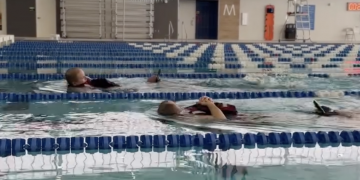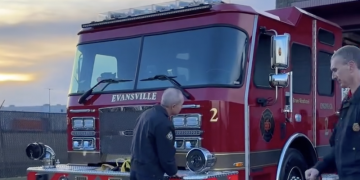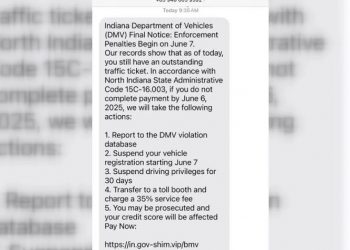Hamilton County, Indiana – This spring, more than 200 law enforcement agencies in Indiana are planning to enhance patrols along school bus routes.
The hike is part of the state’s Stop Arm Violation Enforcement (SAVE) program, which occurs twice yearly. The National Highway Traffic Safety Administration pays overtime patrols, which are conducted by the Indiana Criminal Justice Institute (ICJI).
Participating agencies assert that school bus stop arm infractions are a significant problem, and a Department of Education survey confirms this.
“There were over 2000, school bus stop arm violations in a single day,” said ICJI Executive Director Devon McDonald. “If there’s that many violations on a single day, just imagine how many are occurring throughout the course of a month or an entire school year.”
McDonald stated that there are numerous reasons why passing a stopped school bus while speeding is extremely risky.
“If you’re passing on a county road or something like that, not only could you hit a child, but you could hit an oncoming vehicle,” he said.
During the program last spring, law enforcement issued approximately 1,400 tickets. Patrols are conducted in the morning and afternoon.
The Hamilton County Traffic Safety Partnership aims to be out in full force this spring, according to partner agencies. The alliance involves numerous Hamilton County law enforcement organizations.
Ryan McClain, a deputy for the Hamilton County Sheriff’s Office, has participated in the class before and saw a change.
“The kids know something is up, the parents know something is up, and the drivers are a little extra cautious and alert,” he said.
McClain stated that the purpose of the campaign is to remind drivers how to remain safe even when the police are not there.
“We’re hoping that a police presence, ticketing, or a stern, talking to as far as education goes, will prevent that in the future, even if the police car is not behind the school bus,” he said.
Officials advise motorists to slow down, maintain vigilance, and never pass a stopped bus with flashing lights and an extended stop arm.
“Please just drive like your kids or loved ones are on that bus,” McClain said.
The program has two operational periods beginning on April 1 and ending on April 30. August is the month in which the fall program is implemented.




















































































